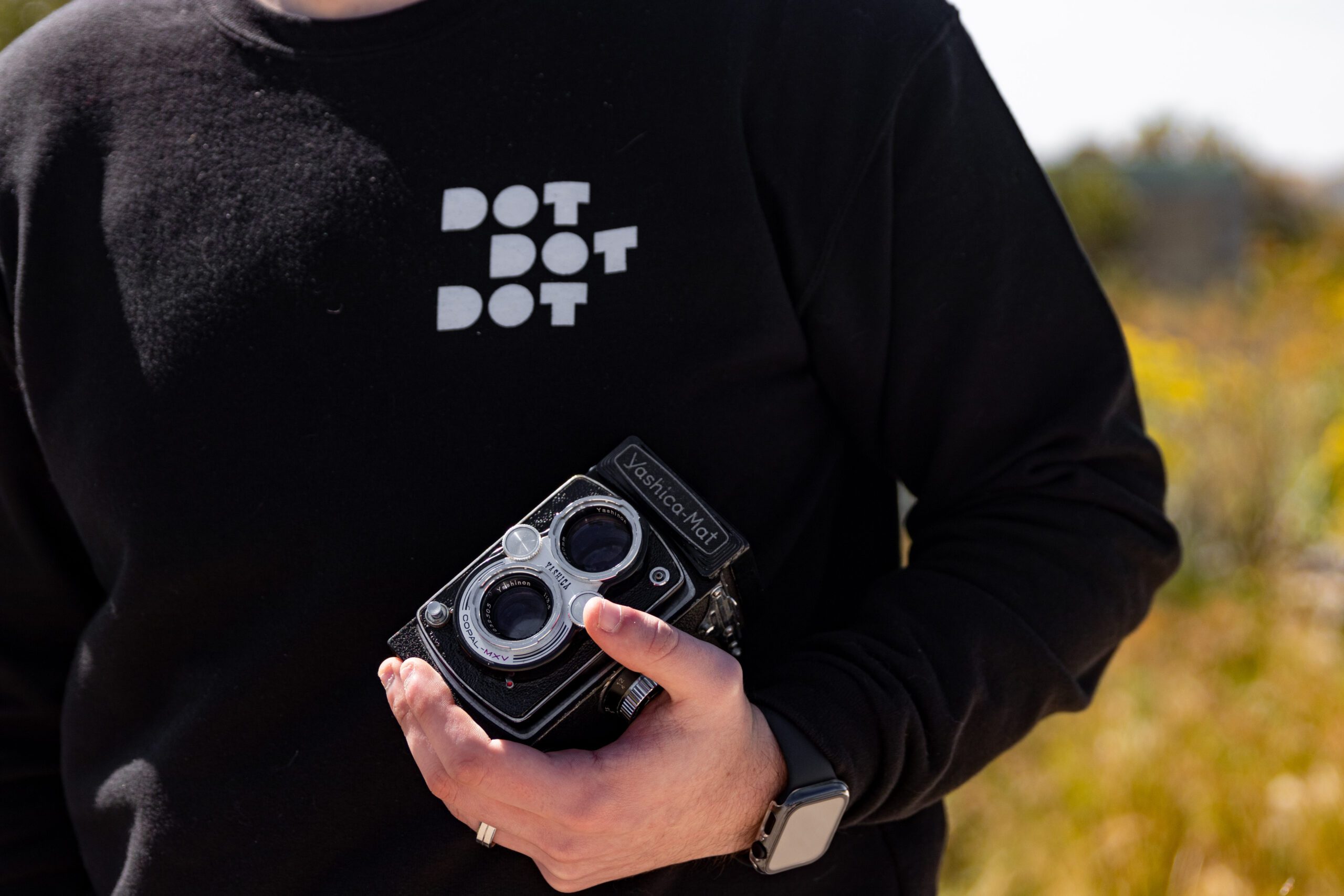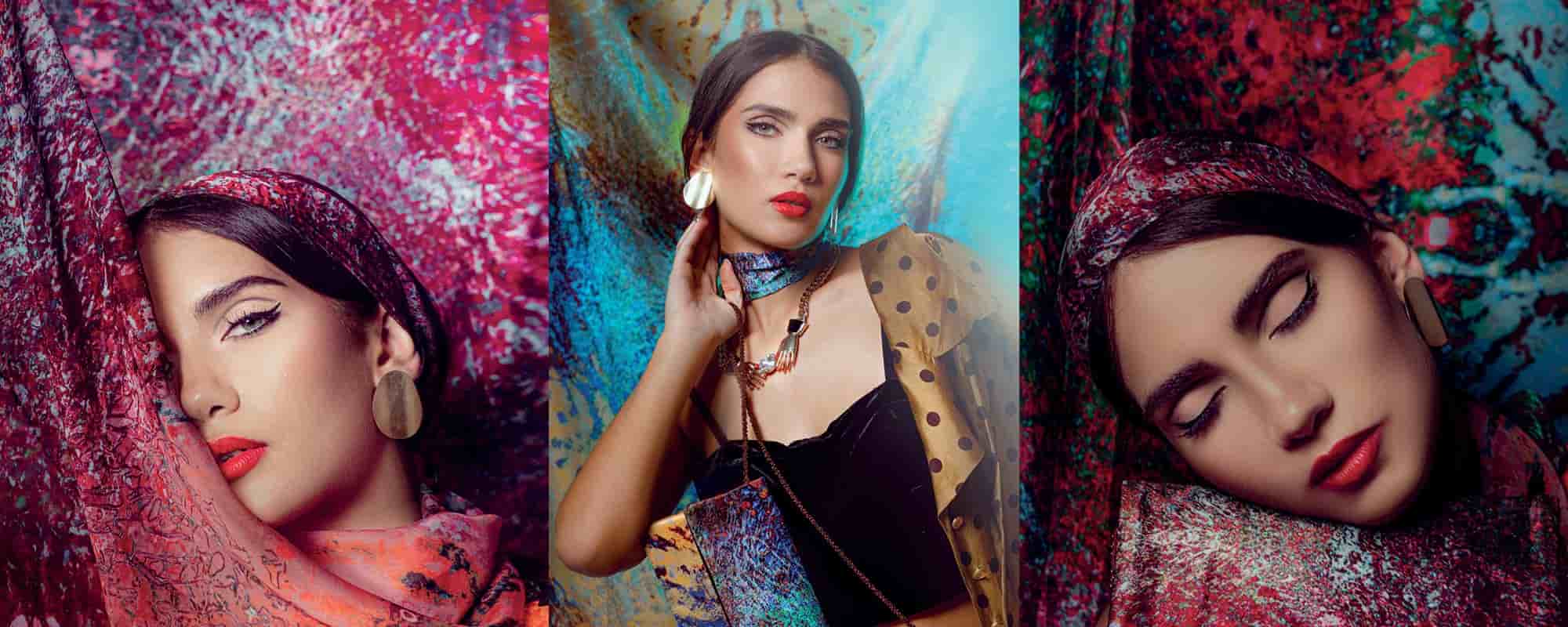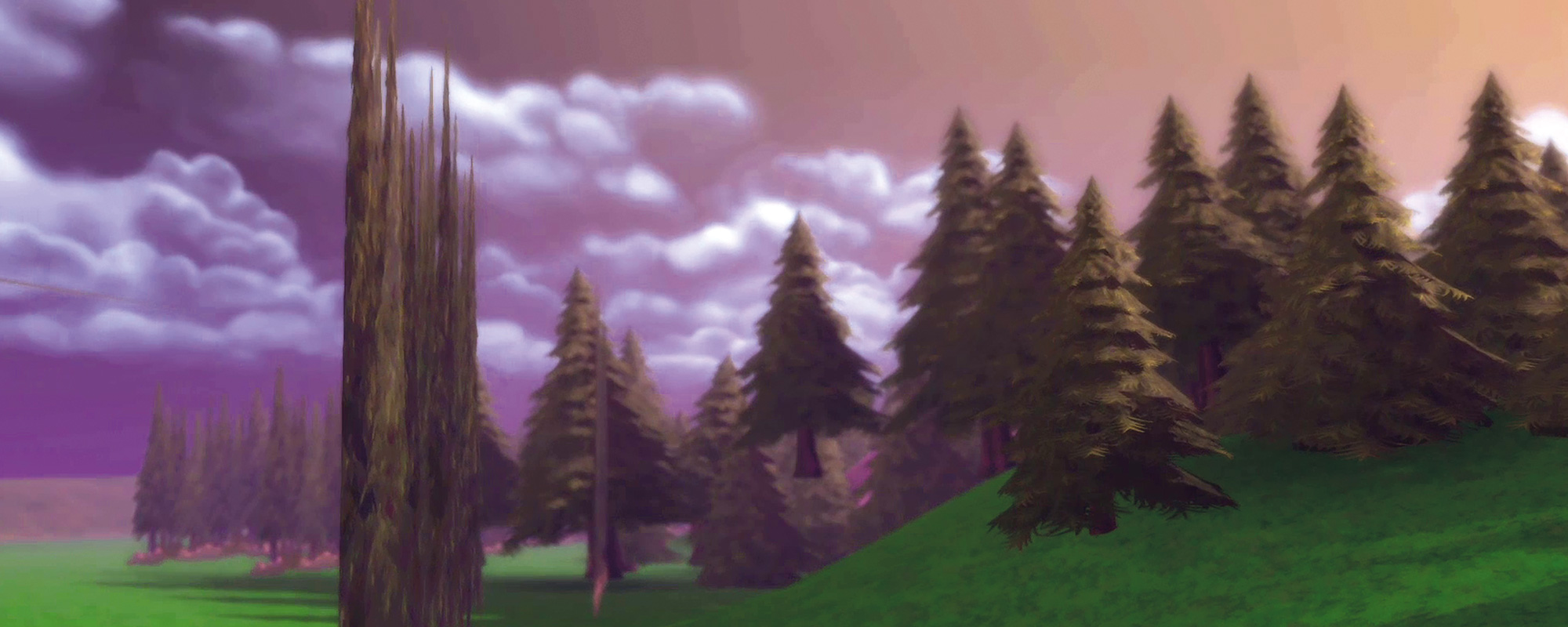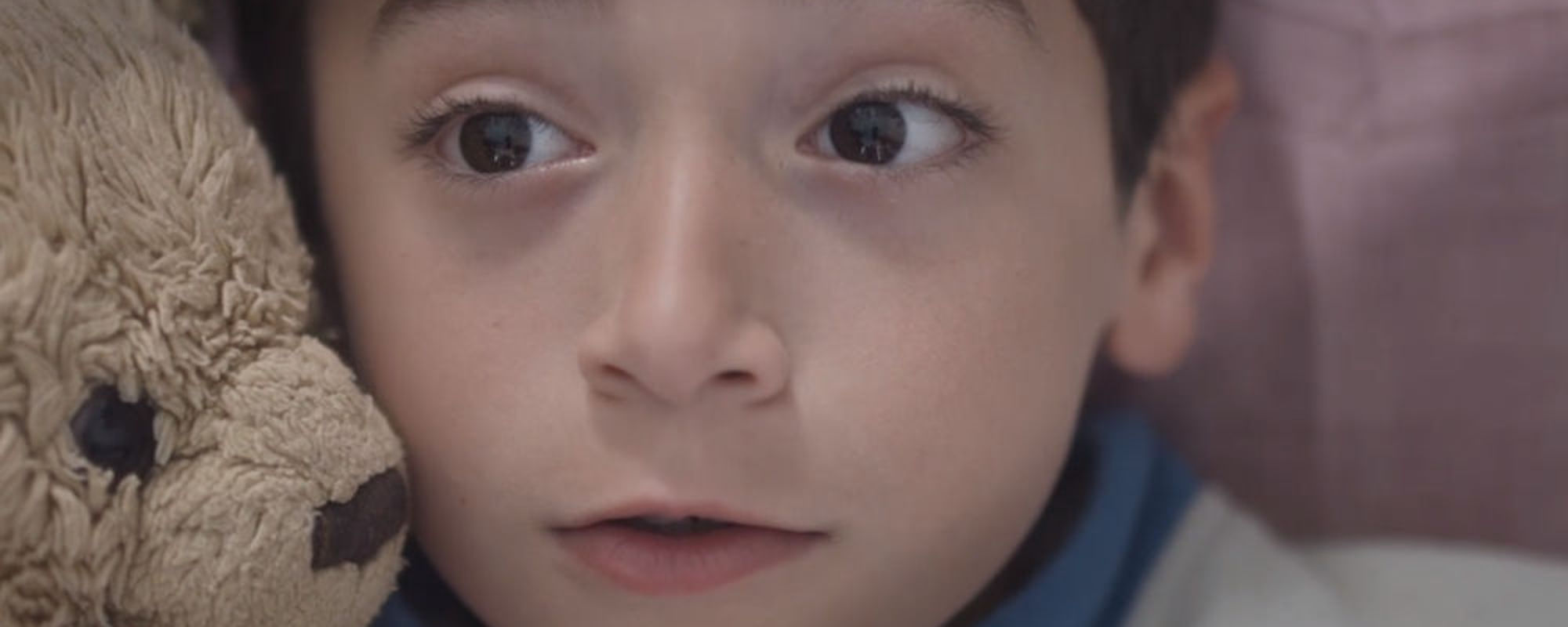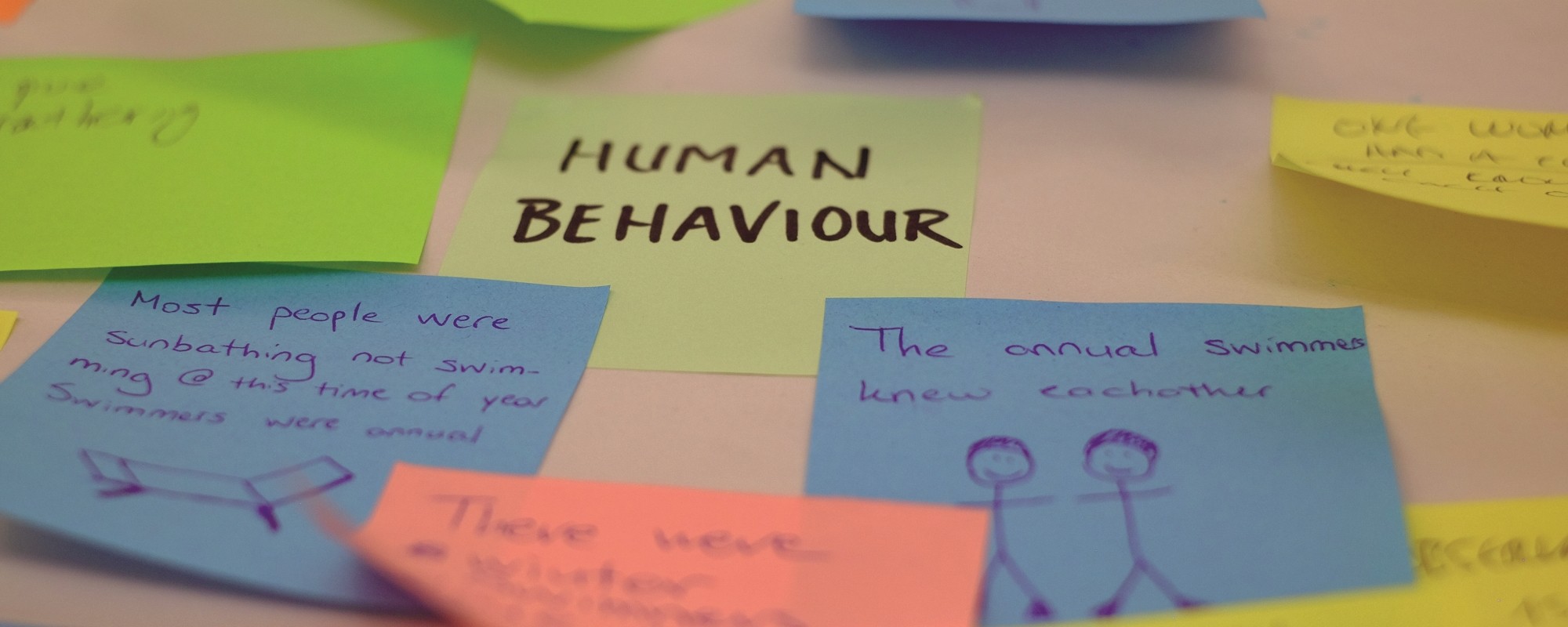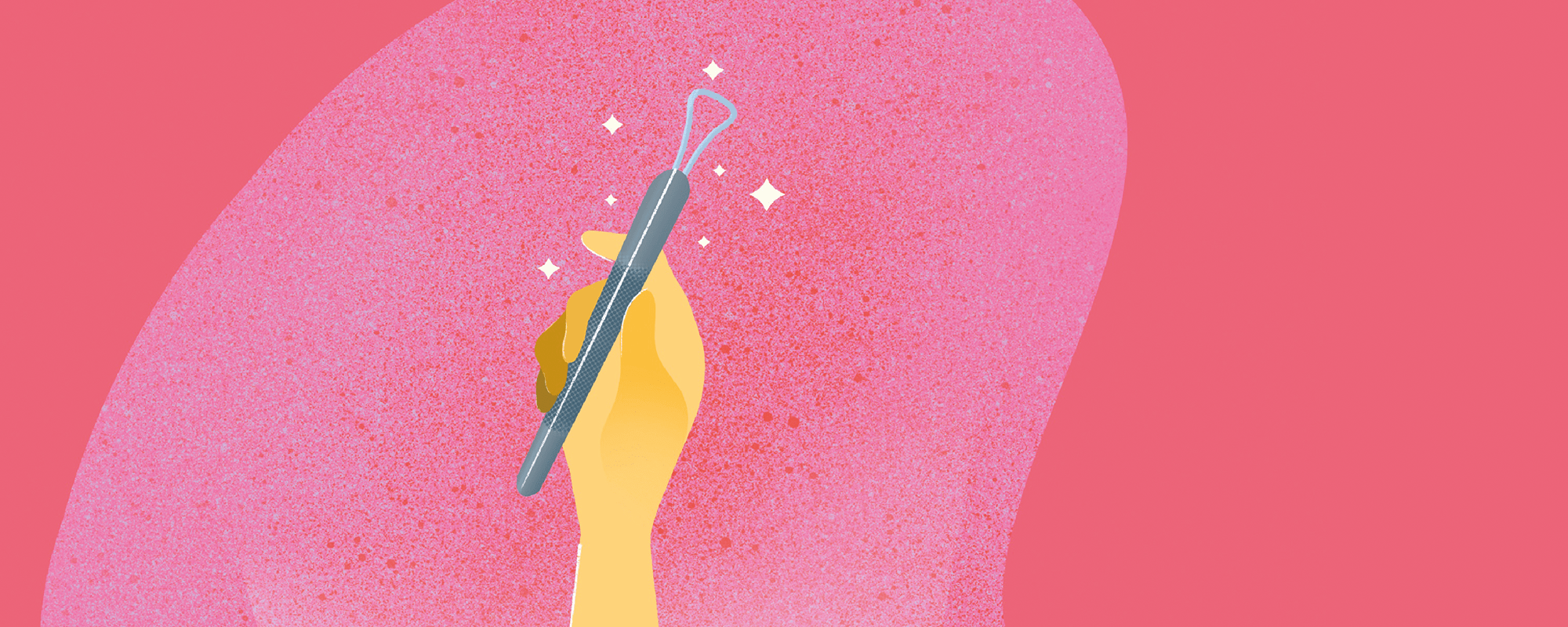As part of their coursework, a group of Media and Knowledge Sciences students following a Bachelor’s of Fine Arts in Digital Arts were tasked with the challenge of rebranding CampusFM, the University of Malta’s official radio station. THINK speaks with Olga Sater, one of the students who worked on the rebranding project, about their journey.
Continue readingdot dot dot…
A group of 28 communication students from the Faculty of Media and Knowledge Sciences set out to produce their unique take on art and creativity through their magazine, ‘dot dot dot’. THINK met up with the head of the editorial team, Julia Camilleri, to discuss their journey.
Continue readingModern Fashion from Ancient Pottery
How historic pottery sherds outlived their makers and inspired a contemporary artist.
Continue readingIn the Palm of our Hands
How do you help children adjust to living with diabetes? For Clayton Saliba, a Master of Fine Arts in Digital Arts graduate, the solution lies in the palm of our hands. By combining digital arts and medical information Clayton developed Digitus, an app designed to help children better understand diabetes symptoms.
Continue readingArt on the cloud
Author: Daiva Repeckaite
‘I find it quite interesting that the transition [from face-to-face to digital communication] is uneasy for some people. For me it’s all the same,’ says contemporary artist Letta Shtohryn. Although her artistic practice suffered when three exhibitions she was to take part in were postponed, her working methods remained unchanged when communication moved online amid the COVID-19 pandemic. Already in 2019, three of her artist residencies were fully digital.
Continue readingDark themes go places
Author: Kieran Teschner
Film is a medium that preserves life’s nuances for the future. It stimulates our senses in ways no other medium can, giving a unique, multilayered experience. Even a small-scale project can speak directly to people’s hearts when made with devotion to the filmmaking craft. The desire to capture a glimpse of the world through someone else’s eyes drove two groups of students to international recognition.
Continue readingDesigning success
Author: Daniela Quacinella
Picture the following. You are a museum director or curator who wants more locals in your space. You are confident that your next art event will attract them: a prestigious artist from London, a series of exciting talks… You are certain it will be a success, because your passion and knowledge are behind this activity. On the day, as you stand near the entrance with excitement tingling across your fingertips, you slowly begin to despair. Despite a great marketing campaign, the local residents congregate anywhere but the museum. What went wrong?
Continue readingDiscover the other side
Author: Emma Clarke
Featuring books, comics, graphic novels, movie posters, and magazines, The Other Side is an exhibition that celebrates the bizarre and unearthly. Each room is dedicated to a genre (sci-fi, horror, or gothic fiction), particular character, or prominent author.
Continue readingBusting out of the box
Aesthetic physician and artistic consultant Dr Joanna Delia traces her journey from medical student to successful business owner, telling Teodor Reljić that her experience at the University of Malta helped her resist excessive industry specialisation.
Modern life is rigidly compartmentalised. Perhaps this is more true of the West than anywhere else, where the materialist, rationalist models that have aided efficiency and technological advancement also require us to absorb vast amounts of knowledge early on, and specialise later.
Many educational systems reflect this tendency and the Maltese model is no exception. From a very young age, exams come in thick and fast, and cramming to pass them replaces a more holistic education.
Dr Joanna Delia is not a fan of the word ‘holistic’—preferring the term ‘polyhedral’ for reasons that will be explained later—and has enjoyed a career trajectory that has flouted excessive specialisation. A doctor turned aesthetic physician with an interest in the world of contemporary art, Delia’s journey is an affront to such restrictive notions.

While she assures me that her own time at the University of Malta (UM) was nothing short of amazing, in recounting the roots of her intellectual curiosity, she is compelled to go even further back.
‘Like every excited little girl, my dreams used to alternate and metamorph somewhere between wanting to be a writer like Emily Brontë or Virginia Woolf and a scientist who would make incredible discoveries and change the world like Marie Curie,’ Delia recalls. ‘I also wanted to be a doctor who would cure people in war-torn countries, yet fantasised about being Alma Mahler or a young Chanel surrounded by philosophers, drenched in fine clothes and surrounded by white rose bouquets…’
Delia recounts this awareness that we’re shaped to view these inclinations as contradictory. But for her, the intuitive desire to learn about and closely observe scientific phenomena matched the heights of aesthetic appreciation.
Vella’s own student enthusiasm did not come as immediately as all that, however. While she is now secure in her three-pronged role as writer, performer, and translator (also acknowledging her former role as a lecturer), forging an early path as a student meant first squinting through the fog.
‘I just loved learning the science subjects… figuring out protein synthesis and DNA replication literally made me feel giddy, light headed, downright euphoric! I was a real geek,’ Delia says with disarming self-deprecation. ‘To me, it was just the same as reading an incredible work of literature or staring at a work of contemporary art alone in one of the silent, perfectly lit halls of a museum.’
Given this internal push-pull across various disciplines, Delia confesses that in terms of pursuing the later strands of her formal education, she ‘floated into medical school’ without feeling the need to strategise things much further. It was only upon graduation that the realities of being slotted into a specialised discipline dawned on her with an ominous pall.
‘The day I graduated I felt a suffocating feeling: the thought that I had somehow sealed my fate,’ Delia says, though the sense of regret which followed did not linger for much longer.
‘Looking at one’s future through a tunnel vision perspective based on the imaginary restrictions of one’s degree is just that a self-imposed illusion,’ Delia observes.
Her University years were active and inspiring, with Delia having happily taken on extra-curricular activities and also quietly rebelled against the notion of boxed-in specialised disciplines.
University and beyond
‘University was amazing! I would repeat those years ten times over,’ Delia unapologetically enthuses. Though she does acknowledge that the Medicine course was challenging to begin with—citing the ‘competition among students’ as an additional factor—she looks back on both her time there, and her association with the UM’s Medical School, with immense pride.
‘My lecturers were charismatic and experts in their field, which of course garners respect and made us feel honoured to be part of that system,’ Delia says, while also recalling her involvement in additional campus activities.
‘I was the chair of the environmental committee at KSU and served two terms as the Officer for the Sub-Committee on Refugees and Peace within MMSA. I loved my time on campus, and encourage all students to participate in campus affairs. We never stopped organising fairs, events, fundraisers, workshops, and outreach programmes with the community…’

Hinting at an essential discomfort with the idea of overbearing specialisation, Delia believes ‘the Maltese education system does not proactively encourage sharing knowledge’, but also notes that she did find hope, solidarity, and inspiration among her peers, from various faculties.’ I socialised with students from the architecture department, and attended their workshop parties. I was invited to history of art lectures and tours. I organised panel discussions to reduce car [use] on campus and lobby for [a] paperless [campus],’ Delia says. All these activities contributed to ‘a feeling of a hopeful future’.
Adjacent to Delia’s academic efforts were her course-related travels abroad, which contributed to expanding her horizons. ‘I did internships in Rio De Janeiro and travelled to India and Nepal through the Malta Medical Students’ Association (MMSA), both of which were incredible experiences.’ During this time, she gained a keener interest in art.
‘My sister was studying history of art and eventually read for a Ph.D. in Museology. I followed her as closely as I could; her subjects fascinated me and a lot of her excitement about art rubbed off on me…’
But first, her early medical career needed seeing to. Delia admits that medical students in Malta are somewhat privileged since they enjoy a relatively smooth changeover from academic to professional life. However, the change happens very rapidly.
‘Young doctors in Malta have the advantage of an almost flawless transition into a job. This also turns out to be the toughest time in your life, but at least there there is a continuity of support at the start of your profession,’ Delia says, citing the diligence and discipline instilled into her and her peers by their University tutors and lecturers. This rigour was crucial to ensure that those early years went on as smoothly as possible.
Pausing to reflect, Delia feels compelled to add that a culture that leaves more breathing room for exploration and enquiry could only be beneficial for the future of Maltese medicine. ‘I wish we had a stronger culture of research and publication in Malta. We need to somehow find time for it as it will not only improve the reputation of the institution but also nurture us as students, alumni, and professionals, and keep us on our toes,’ Delia says, adding that these ideas reflect the same culture of hard work that her course promoted, which rewards diligence and depth. ‘I believe in constantly keeping astride with knowledge by reading publications and actively pursuing ‘continued medical education’. I wish that the institution instilled more of this into its alumni,’ Delia muses.
This approach of constant enquiry arguably gave Delia a fount of knowledge and inspiration to draw from when she found herself at a forking road in her medical career.
Expanding horizons
”After a few years of working at the general hospital, I was lucky enough to be chosen to pursue some level of surgical training, but by that point I had realised that the life of a surgeon was not for me…’
This was an ‘extremely tough decision’, with regret once again raising its ugly head. ‘However, the 80-hour weeks, and above all the realisation that my professional life would be all about facing and treating ill and dying people, forced me to make a decision to leave the hospital,’ Delia says.
This pushed Delia to explore other careers, and she now juggles her love of both medicine and aesthetics in a sustainable way.
‘After I stopped working as a hospital doctor, there were too many things I was hungry to explore – one of them was medical aesthetics. I started pursuing training in London and Paris, and essentially spent years of salary training with the best doctors I could find.’

After working at a reputable local clinic, Delia finally managed to go at it independently, opening up her own place.
‘It was nothing short of a dream come true. I had to search hard within myself and build up entrepreneurial and management skills. I learnt the hard way sometimes, business-wise, but I was also fortunate to find help from my friends who excel in other fields like marketing, photography and architecture, to help me build my brand and clinic,’ Delia recalls.
In the end, her resistance to rigid specialisation helped her to open a thriving business called Med-Aesthetic Clinic People & Skin. She couples this work to her position as head of the Advisory Board at the newly-opened Valletta Contemporary, a boutique showcase for local and international contemporary art run by artist and architect Norbert Francis Attard.
Which brings her story back to a ‘polyhedral’ conception of the world.
‘I believe everything in life is polyhedral. I prefer polyhedral to ‘holistic’. Every square, or rather, every cube we think we’re trapped in, can be pushed out and reconfigured to welcome other disciplines. I don’t believe any of us purposely split the two fields, but I believe we don’t allocate enough time to explore all the wonders we could discover if we used both their lenses to analyse the world. After all, even Einstein believed that the most important thing in science is creativity…’
Architecture: A dying art?
Making smart choices for our current urban fabric through architecture requires a massive understanding of all the moving parts of the industry. But is it time to go back to basics? Cassi Camilleri speaks to Prof. Antonio Mollicone and the talented people at AP Valletta to come up with an answer.
The changes in the Maltese landscape over recent years has been drastic. All over social media, petitions keep being shared to prevent one original building or another from being torn down and replaced with contemporary apartments. This has ‘resulted in discomfort for many,’ says Prof. Antonio Mollicone, an architect lecturing within the Faculty of Built Environment (University of Malta).

The discomfort is multifaceted. On one level, it has to do with the physical climate within buildings. Over the last few decades, Malta has seen a shift in the property types people buy, and these properties seem to be leaving people hot or cold in their own homes.
Through his research, which used an old Maltese farmhouse as his case study, Mollicone found that ‘a property’s orientation, double skin (having two layers of brick walls), ceiling height and window measurements all have a role to play.’ Mollicone points out that ‘orientation is most important.’ In an ideal world, based on Malta’s position on the globe, ‘houses should be north-south facing and rotated clockwise to east by eight degrees to get the best of the sun in winter and the least of it in summer.’ Higher ceilings can create a four-degree difference in the temperature inside a room. As for the floor to ceiling windows you see in all the glossy magazines, Mollicone finds them problematic, noting the costs involved in terms of energy efficiency when replacing stone with glass. ‘Certain basic techniques in design are being lost in the fast-paced world of today,’ Mollicone asserts.

On this note, founding partner of AP Valletta, Konrad Buhagiar, says that with the ‘era of radical pragmatism’ we are currently living in, ‘the commercial aspect of a project is paramount,’ adding, ‘It will always be so. It is the nature of the industry.’ But with this being said, effort needs to be put into giving buildings and new projects a depth that ‘connects [them] to [their] context.’
Even with the best of intentions, challenges still arise. Mollicone laments the flashy features he sees added to a building’s façade before a thought is given to function. ‘It’s make-up for buildings. Nothing more. I call it lipstick architecture.’
Luca Caruso, an environmental architect at AP, also speaks frankly, noting that the ‘construction sector is the least innovative worldwide.’ However, by putting an emphasis on quality and criticism, this can change. ‘Criticism is important in order to raise awareness about the possible consequences of Malta’s ‘uncontrolled’ growth. […] Debate can lead to new, innovative ways to inspire decision-makers while respecting local characteristics.’
The reality, as Caruso states, is that ‘Malta has undergone massive changes over the last 30 years, and this is a process that requires some more years to mature.’ Buhagiar announces himself a cynic, saying that ‘to produce something excellent, you need an enormous amount of thought and discipline, rigour, and dare I say, sacrifice, all words that do not describe the current culture in any way.’ But Mollicone has hope that common sense will prevail. ‘All we need is to take more time to think about things. Create mindfully. That’s all.’


